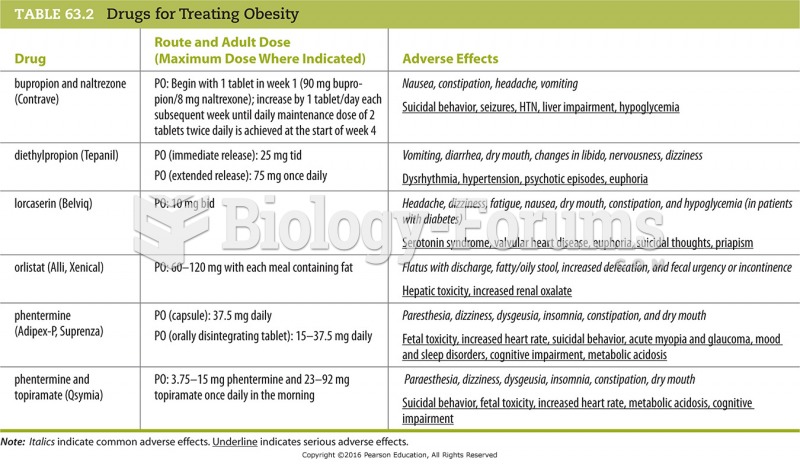|
|
|
About one in five American adults and teenagers have had a genital herpes infection—and most of them don't know it. People with genital herpes have at least twice the risk of becoming infected with HIV if exposed to it than those people who do not have genital herpes.
Giardia is one of the most common intestinal parasites worldwide, and infects up to 20% of the world population, mostly in poorer countries with inadequate sanitation. Infections are most common in children, though chronic Giardia is more common in adults.
In 1844, Charles Goodyear obtained the first patent for a rubber condom.
Human kidneys will clean about 1 million gallons of blood in an average lifetime.
There are more nerve cells in one human brain than there are stars in the Milky Way.







